Ethereum APIs: Worth It?
So, Ethereum. It’s had the “Dencun” upgrade back on March 13, 2024, which sounds vaguely like a rejected character from a Tolkien novel. This thingamajig brought in “Proto-Danksharding” (EIP-4844), which, let’s be honest, sounds like something you’d find in a teenager’s bedroom 🧦. Anyway, despite all the hoopla, ETH hasn’t exactly been setting the world on fire 🔥 in this bull cycle. Total trading volumes have, however, wobbled past $2 billion. With all this supposed activity bouncing around on Ethereum and its layer-2 networks (whatever *they* are), apparently there’s a desperate need for data tools that can cope with the high demand. Apparently. So, let’s have a gander at some of the alleged best solutions, shall we?
1. Bitquery API
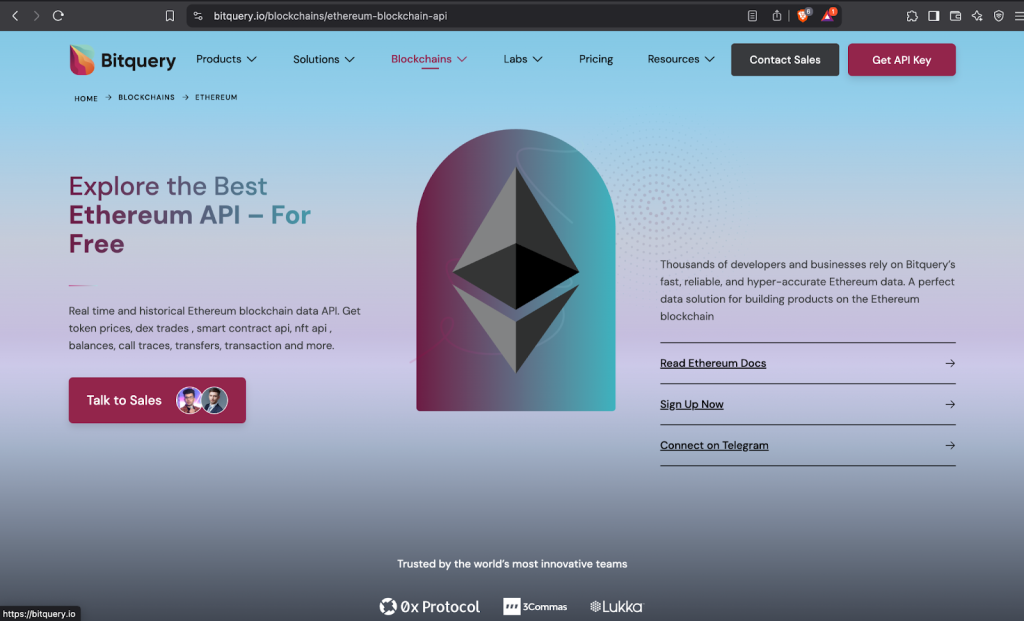
Bitquery Ethereum API claims to offer the most extensive blockchain data platform for Ethereum developers. The most extensive, eh? That’s a bold claim. Setting a “high bar,” they say. Let’s see:
- Full Ethereum Data Access: Get everything. And I mean everything. Transactions, smart contracts (whatever those are), tokens, exchange activities… all through a single GraphQL API. Sounds like a plate of alphabet soup 🥣.
- Real-Time & Historical Insights: Analyze both archived data and live streams, including mempool data. Because who *doesn’t* want to spend their evenings analyzing mempool data? 😴
- Broad Multi-Chain Reach: Access data across Ethereum, Polygon, BSC, Base, and other EVM-compatible networks. It’s like they’re collecting chains like Pokémon. Gotta catch ’em all! ⛓️
- Flexible Query Options: Pull data through GraphQL APIs, WebSockets, SQL, and popular cloud providers like AWS, Snowflake, Google BigQuery, and Azure. Sounds like a whole lot of jargon to me. 🤷♂️
- Live Streaming: Get notified of real-time Ethereum events, including transactions, NFT shifts, and smart contract interactions. You’ll never miss another transaction, NFT shift, or smart contract interaction again! (Not that you knew what they were anyway).
- Built-In Development Power: Craft, run, and share queries using Bitquery’s intuitive GraphQL IDE. Dive right in with the Bitquery GraphQL IDE! (Assuming you know what any of that means).
Bitquery’s platform apparently features specialized datasets for DEX trading, token flows, NFT marketplaces, and smart contract analysis, making it “incredibly useful” for a wide range of development tasks. They want you to learn more about NFTs, suggesting you explore the Bitquery blog on NFT collections and NFT sales tracking. Because that’s how you spend a productive afternoon. 🙄
2. Alchemy API
Alchemy, not to be confused with turning lead into gold (although some crypto projects try), provides node infrastructure with handy developer tools:
- Node services for Ethereum and L2 networks
- Specialized APIs for NFT and token data
- Tools to troubleshoot and fix issues (because there will be issues)
- Improved WebSocket support for real-time updates
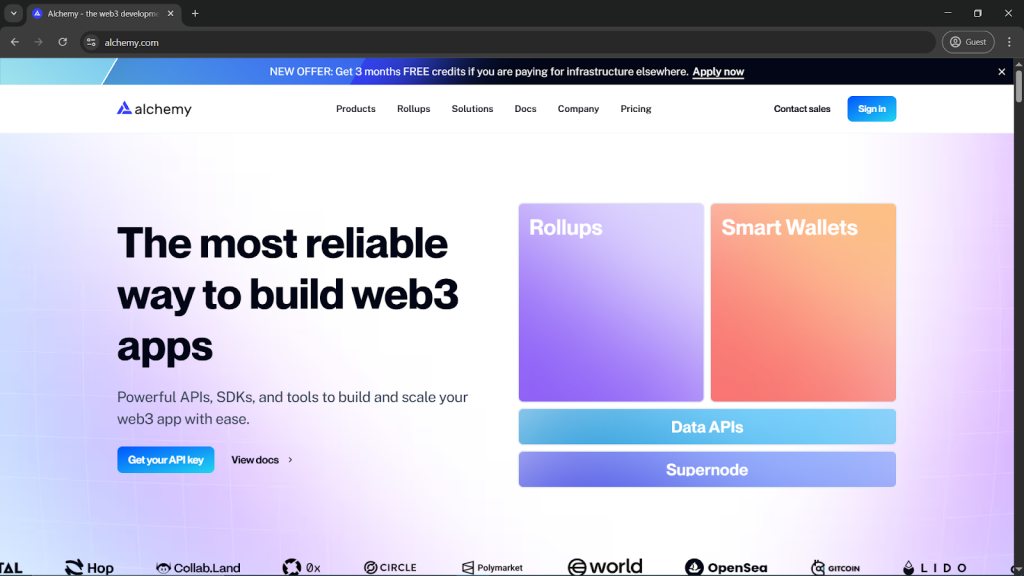
3. Infura API
Infura offers, and I quote, “reliable node connections.” Riveting stuff:
- Access points for Ethereum and IPFS (because why not?)
- JSON-RPC API endpoints (sounds like something out of Star Wars)
- Dashboard to manage projects (because every project needs a dashboard)
- Usage-based pricing (prepare your wallet)
- Decentralized Infrastructure Network (DIN) support for “better reliability” (because reliability is optional, apparently)
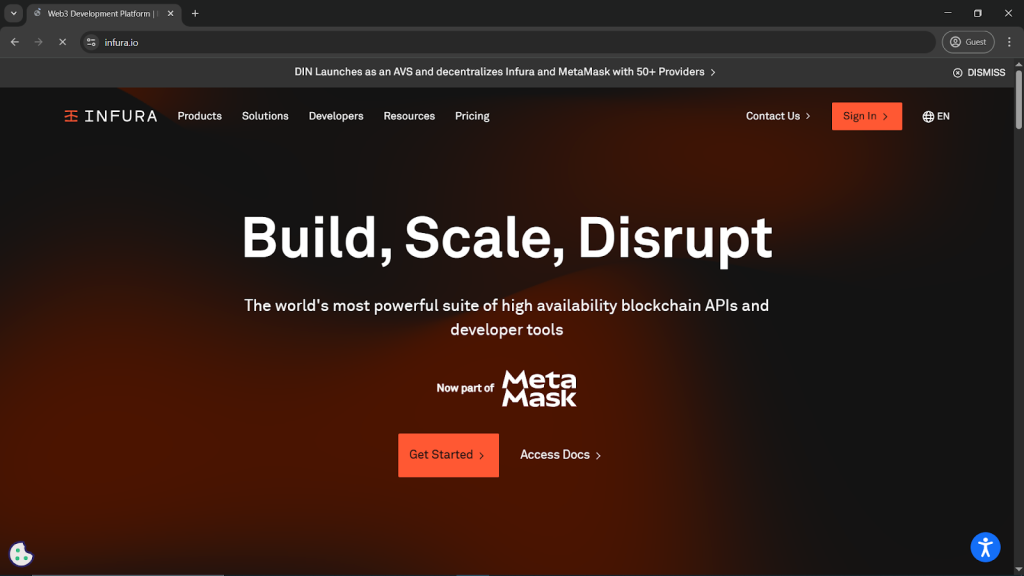
4. Moralis API
Moralis focuses on Web3 backend tools. Because the front end is overrated:
- Works across various chains
- APIs for NFTs and tokens
- User login solutions (finally, something practical!)
- Event notifications
- Backend serverless functions
- Real-time database syncing with blockchain activity (because who needs sleep?)
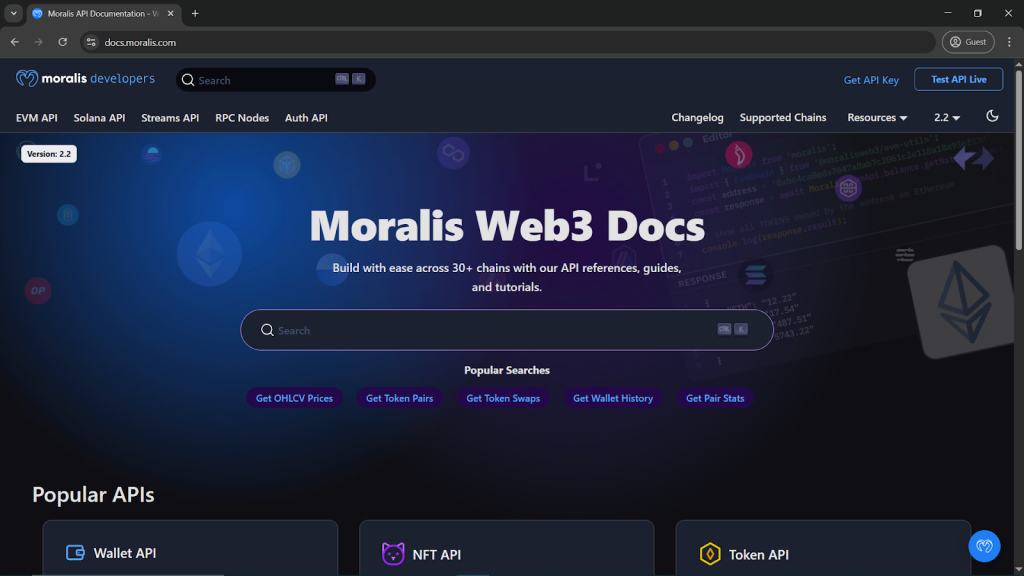
5. Etherscan API
Etherscan provides blockchain explorer data. For those who like exploring blockchains, I suppose:
- Look up transactions and addresses (like a digital detective)
- Tools for contract verification
- Gas price tracking (for the truly frugal crypto enthusiast)
- Monitor token movement
- API access to verified contract code and ABIs
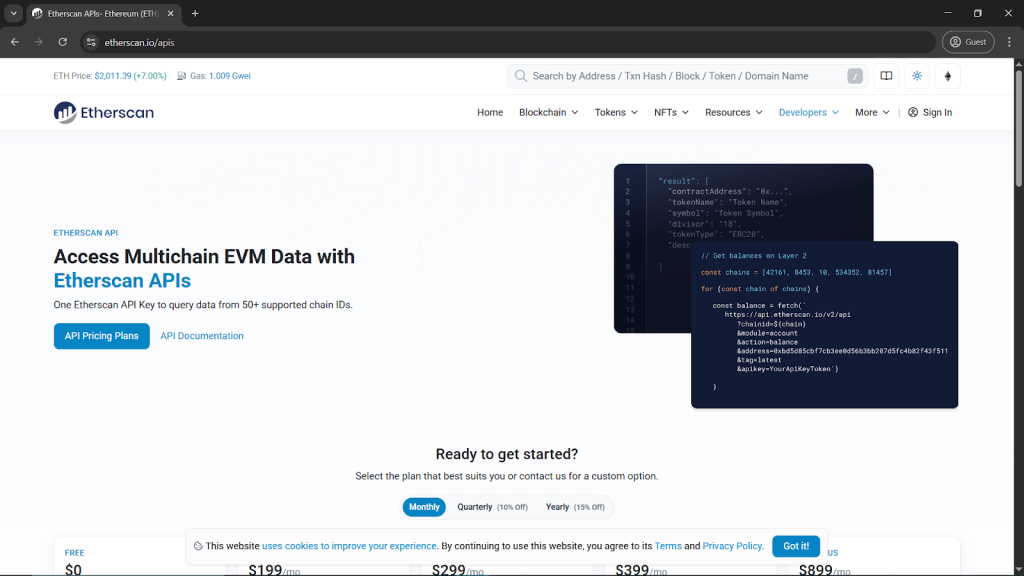
6. The Graph API
The Graph lets you search indexed blockchain data. Because Googling isn’t enough anymore:
- Build custom data indexes
- GraphQL-powered searches
- Decentralized indexing
- Support for many networks
- Community-built subgraphs
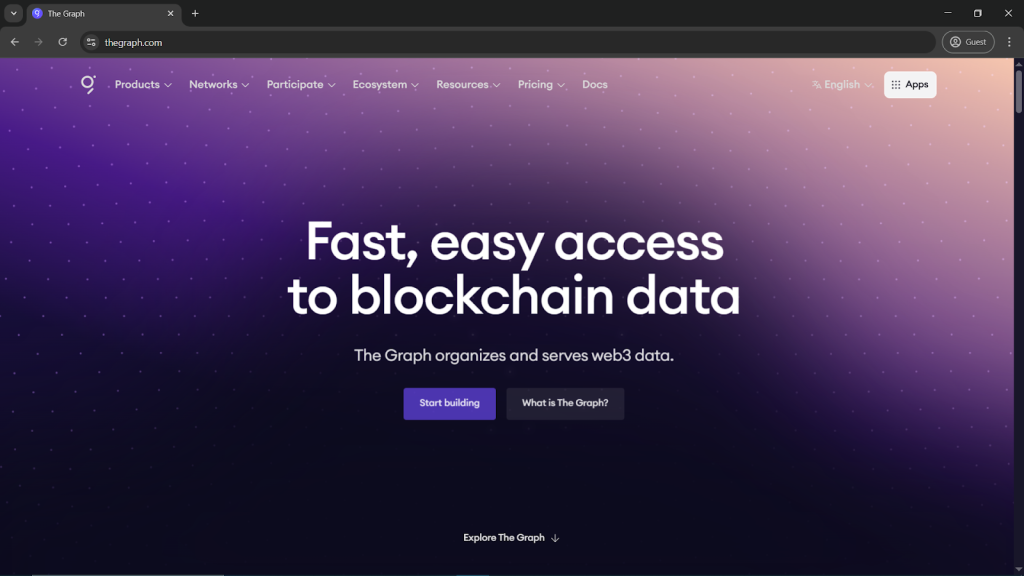
7. Chainlink API
Chainlink links you to external data. Like a chain, I suppose. A linky chain:
- Price feeds
- Random number generation
- Connections to external sources
- Works across chains
- Cross-chain transaction capabilities
- Identity verification
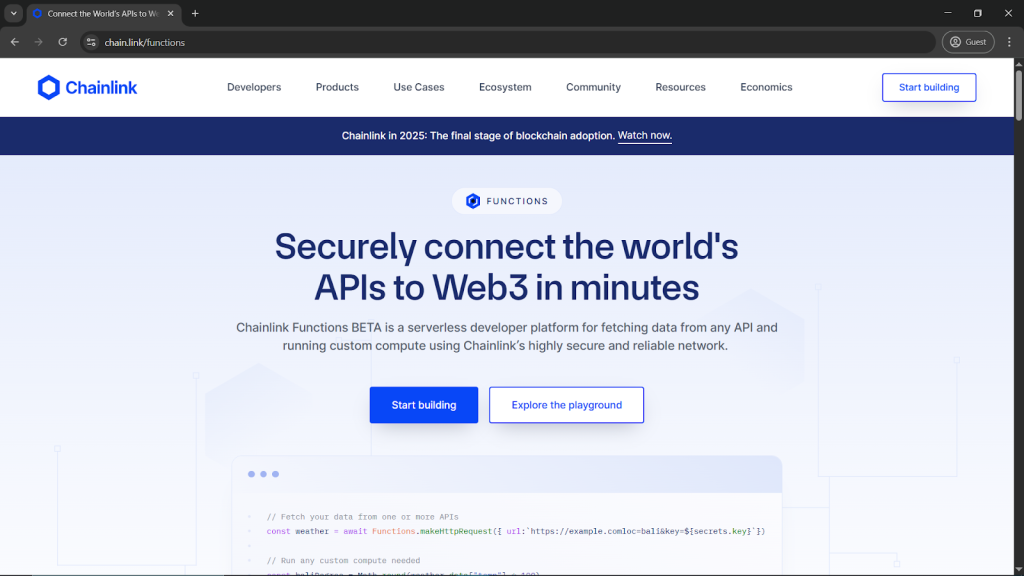
8. QuickNode API
QuickNode offers fast node services. Because nobody likes slow nodes:
- Quick Ethereum connections
- WebSocket support
- Additional APIs
- Developer dashboard
- Smart request routing for better performance
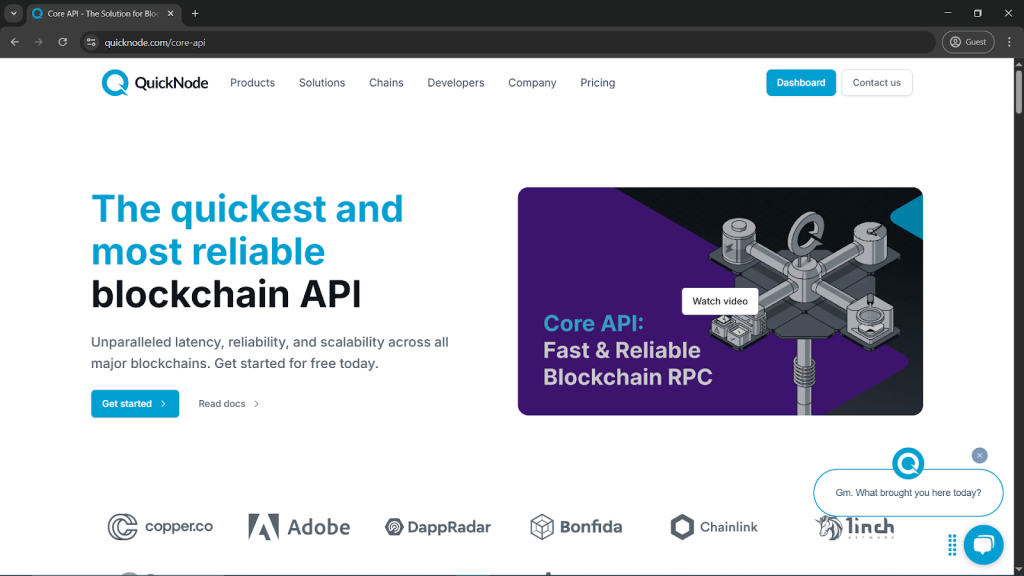
9. Ankr API
Ankr provides multi-chain connection services. Apparently it’s like a dating app for blockchains:
- Both free and paid options (you get what you pay for, usually)
- Support for numerous chains
- API usage tracking
- Pay-as-you-go pricing
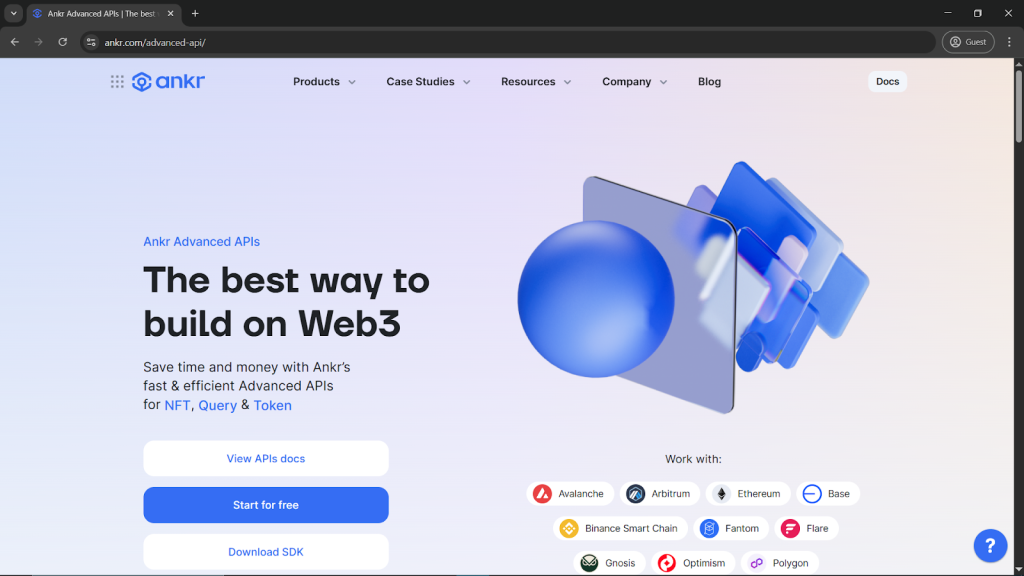
10. Covalent API
Covalent gives you combined blockchain data. Because who wants data that isn’t combined?
- Check token balances and transactions
- Get NFT details
- See historical price data
- Unified access across many chains
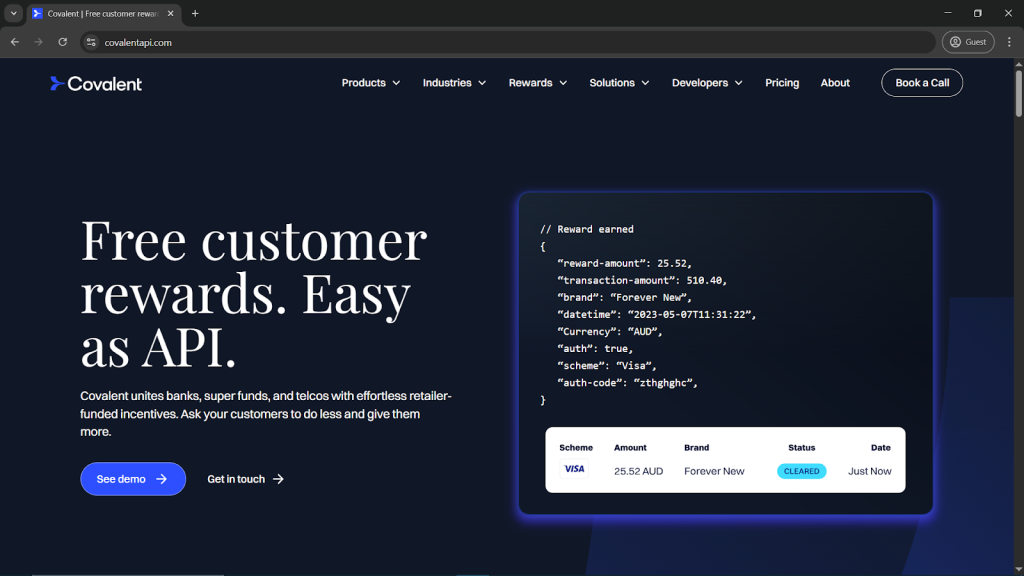
Read More
- Who Is Harley Wallace? The Heartbreaking Truth Behind Bring Her Back’s Dedication
- 50 Ankle Break & Score Sound ID Codes for Basketball Zero
- Lost Sword Tier List & Reroll Guide [RELEASE]
- Basketball Zero Boombox & Music ID Codes – Roblox
- 50 Goal Sound ID Codes for Blue Lock Rivals
- Summer Games Done Quick 2025: How To Watch SGDQ And Schedule
- 100 Most-Watched TV Series of 2024-25 Across Streaming, Broadcast and Cable: ‘Squid Game’ Leads This Season’s Rankers
- The best Easter eggs in Jurassic World Rebirth, including callbacks to Jurassic Park
- You Won’t Believe Denzel Washington Starred in a Forgotten ‘Die Hard’ Sequel
- Ultimate AI Limit Beginner’s Guide [Best Stats, Gear, Weapons & More]
2025-03-28 09:15